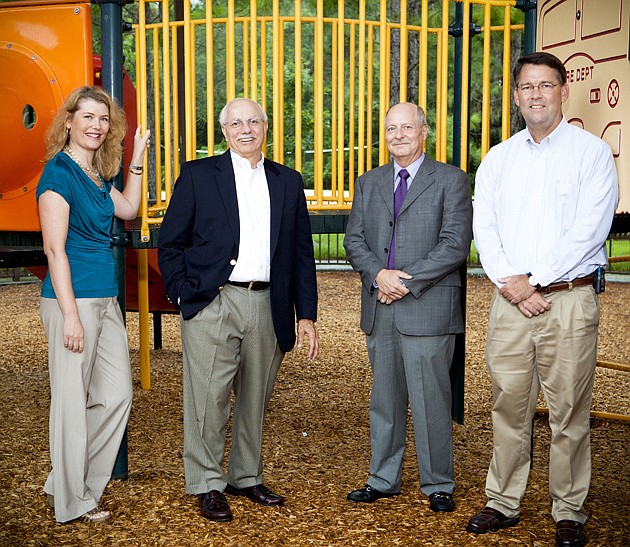- November 25, 2024
-
-
Loading

Loading

Owning a company built upon construction and real estate was great in the go-go years. But what happens when the earth stood still in those industries and companies collapsed?
For Rizzetta & Co., a lot of adaptation to the new world after a small dip in sales led it to new growth. More than survival, like other companies that made it through the recession, Rizzetta examined everything it did and changed into a different company.
“We had tremendous growth in the late '90s and the early 2000s. Everything was going well,” says William Rizzetta, founder and president. His Tampa-based company, started in 1986, provided management services for homeowners associations and community development districts. With strong population growth, new developments and ever more HOAs and CDDs, Rizzetta was growing and profitable.
Then came 2007.
“When the housing market went off the cliff, we took a drop. No doubt about that,” he says. “But we were able to minimize that. We did not lay off any people. We did let attrition take its toll.”
How did his company of 80 employees survive what was to become a long downturn in real estate and utter standstill in new construction?
“We asked, 'How is the market changing and what should we be doing?'” Rizzetta says. “We realized we had to start adding people,” although he admits he was slower to come to this realization than his staff.
The first thing the company did was hire operations managers out in the field for CDDs, something it had never done before.
“We had to bring some staff on,” Rizzetta says. “It seemed a little counterintuitive. Wait a minute, our revenues are going down and you want us to spend more money?”
But the decision to put a person near CDD boards to help them navigate changing economic waters provided a comfort level that allowed the company to keep those relationships and contracts.
“It was one of the best things we did,” he says. And a competitor did the same thing.
The next response for the company was to enter a territory of services it never really anticipated: amenity management.
Homeowners associations have pools to maintain, common areas to mow and weed and plant flowers in, and rooms to clean. Rather than contract out for each service, Rizzetta crosstrains its onsite maintenance on all duties. That means Rizzetta's staff is there every day, which allows the community to control quality, expenses and save money.
“It enhanced our credibility with our clients,” Rizzetta says. “It has been a huge success. It is another element of business we are doing now that we were not five years ago.”
Further, Rizzetta explained to the boards how much money the communities could save by mowing the grass less frequently and planting flowering annuals once or twice per year instead of three times.
In addition, the company made a big internal change to create a seamless consistency throughout its six offices.
“We're big on consistency,” Rizzetta says. The management and quality was made consistent so statewide clients could go to any office and find everything the same, from filing to rules to services. It gave an additional layer of professionalism and comfort for clients.
When the foreclosure waves began hitting, homeowners associations were knocked backward financially because such a large percentage of houses were not paying dues anymore. Abandoned homes, home in the foreclosure process and bank-owned homes were rarely making HOA payments.
This was another service Rizzetta added.
Heather Russell, the company's director of community association management, is in charge of the collections department, which guides the HOAs and CDDs through the morass.
“We help the associations look at all their contractors and push the vendors to lower their prices and offer better service,” Russell says of the expense side. Contracts signed in 2005 were just too fat for 2008.
The company offers services on the revenue side as well.
“We help them, aggressively pursuing delinquent collections with collection attorneys and outside services and working out payment plans with homeowners,” Russell says. “Associations are starting to pull themselves up out of the pits.”
And all this had to be done without raising prices, because that was impossible in the economic climate. But Rizzetta was keen to not compromise on pricing. Instead, the company kept adding services -- giving greater value without sacrificing revenue — and then trimming anywhere it could at home.
“We're privately owned...we're very lean and we're always looking for ways to be more efficient,” Rizzetta says. “We challenge everyone there.”
It has paid off. Rizzetta is actually larger than ever. Although the company does not release revenues, it has six offices in Florida and properties under management in 22 counties. There are 82 employees — just more than the 80 it peaked at before the crash and up from about 70 at its lowest point.
Rizzetta keeps looking for more services. The firm is studying the possibility of offering golf course management -- particularly on the bookkeeping side — to clients that have courses in their communities.
“Things are looking better,” Rizzetta says.
Gulf Coast Clients
The following are some of Rizzetta's clients on the Gulf Coast:
Fishhawk Ranch, Tampa
Harbour Isles, Tampa
Sonoma, Manatee
Meadow Pointe, Pasco
Paseo, Fort Myers
Lucaya, Lee
Grayhawk Landing, Manatee
Waterlefe, Manatee
Verona Walk, Collier